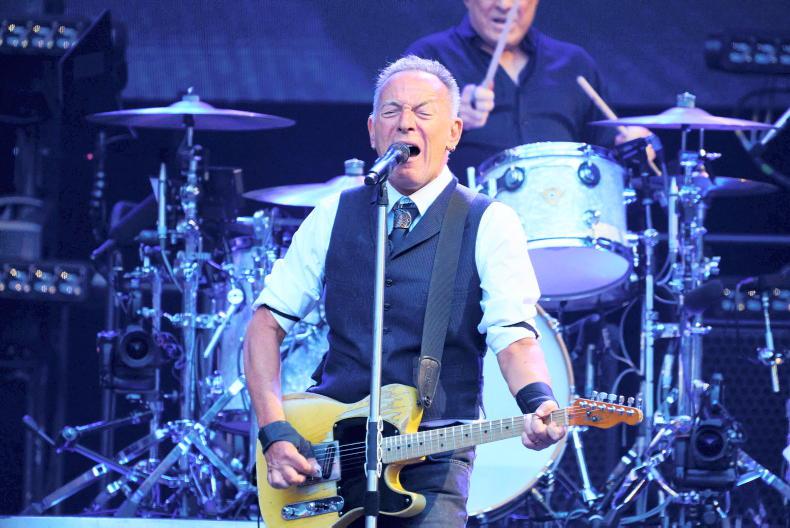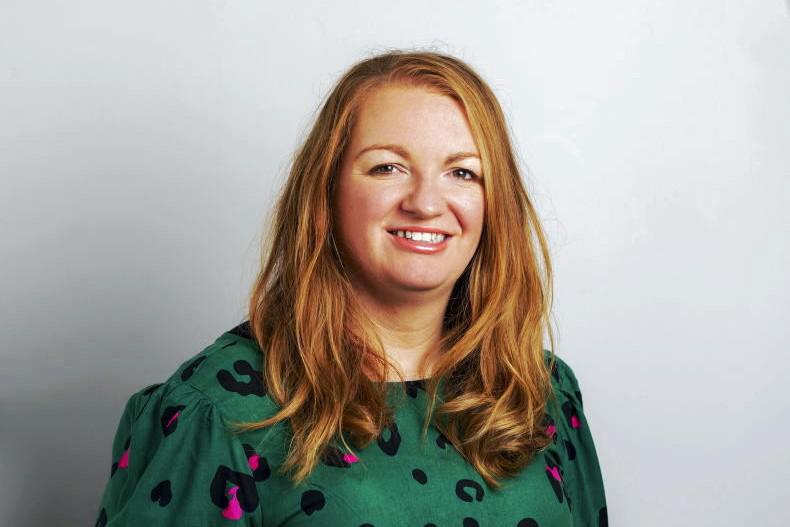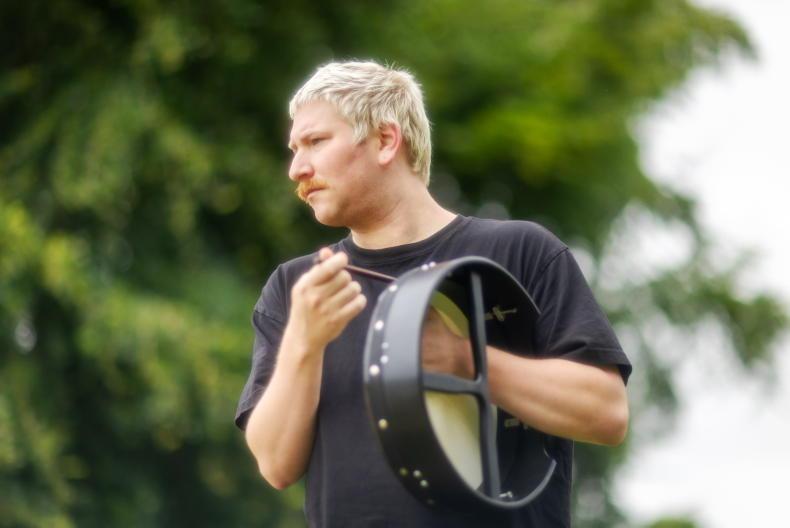Summertime is concert season and this year there are some big-ticket names blazing on stage. This weekend, over 150,000 people are expected to see Taylor Swift in the Aviva Stadium, after the Dublin leg of The Eras Tour sold out in less than an hour last year. Following Bruce Springsteen’s spate of Irish gigs in May, he became one of the few artists to have performed to over one million Irish fans, over the length of his career. And at the end of the summer, Coldplay will be one of the few acts to play four nights at Croke Park, with over 300,000 people expected to be singing along to ‘Viva La Vida’.
When the music is pumping, the sun is shining and the atmosphere is electric, you can’t put a price on those moments. However, the reality is these experiences are expensive nights out; not just in terms of ticket prices but also accommodation costs especially for Irish Country Living readers that may be living a distance from the major cities.
While ticket prices are announced in advance of the event, accommodation prices can be unpredictable. Consumers are more likely to see surge pricing coming into play; this is where rates change depending on supply and demand as well as competition.

Bruce Springsteen.
Surge pricing
Throughout May and June, Irish Country Living has been monitoring hotel prices around the dates of these music events. And surge price is certainly clear – not just in Dublin, but also Cork and Kilkenny.
With Swifties heading to Dublin this weekend, hotels are set to be jam-packed in the Ballsbridge area as well as the city centre. This weekend, The Maldron in the city centre will cost €495 a night – that’s for a standard double, no breakfast – which is the rate that we sought for all our hotel prices. Look ahead to next weekend, and prices decrease to €295 – that’s €200 less. The Clayton in Ballsbridge is charging €414, but similarly, a week later, its €229, an 80% increase from one week to the next. The Herbert Park Hotel is charging €409 this weekend which is more than 100% more than next weekend when the same room will be €200.
On the other side of the city, surge pricing is also evident. The Maldron on Parnell Street are charging €403 a night when Coldplay are playing. Two weeks earlier in mid-August, the height of tourist season, room rates are €245.
The Croke Park Hotel is charging €285 mid-August. We were informed by phone that they were fully booked for the nights of the Coldplay concert. When asked what the price of the room would be in event of cancellation, they simply stated, “more than €300.”
Surge pricing isn’t just a capital problem. The night that Bruce Springsteen played Nolan Park in Kilkenny, Booking.com was quoting room rates at €366 for a hotel that a week later would cost €157, a 133% increase. Last week, when Take That took to the stage in Cork, the Imperial was charging €390 a room; one week earlier, it was €206 a room.
Irish issue?
So does this add flames to the fire that we are the ‘rip-off republic’ or does this happen everywhere? Surge pricing certainly isn’t exclusive to Ireland, but the percentage hikes are more stark than other countries.
First, let’s look at hotel prices in general. Fáilte Ireland commissioned a report in April to ascertain if price gouging was occurring in Ireland, under the instruction of Minister for Tourism Catherine Martin. One of areas examined was Average Daily Rates (ADRs) in hotels across Europe. Since 2019, the ADR’s in many European cities have increased. While Dublin is up by 29%, Berlin has increased by 25% and Amsterdam by 24%. UK cities have spiked even higher with Belfast up by 38% and Edinburgh by a significant 44%. The rate of increase in Copenhagen was one of the slowest at 7%.
What is evident though is that while increases are across the board, Dublin does spike more to meet the demand of big events, sitting around 90% to 100%. This is because the city does not have the capacity to cater for the increased demand. Bigger cities such as Paris and London show spikes of 5% and 9%, respectively. However, let’s look towards cities where the size and population is more in line with Dublin. Liverpool for example sees increases of 116% in hotel prices to meet demands of big events, while Stockholm sits around 119%. Both also experience chronic supply shortages and less inventory to meet demand.
If more hotel beds means less competition, and thereby less price surging, is this the solution to the situation? It may well be but it is unlikely to happen anytime soon. Within the next decade, it is expected that there will be a national shortfall of 11,500 hotel rooms. Dublin alone needs 4,000 extra rooms to meet demand. And this isn’t just an infrastructure and building issue. In Dublin, 10% of all Fáilte Ireland registered stock – or 6,800 beds – is under government contract. So not only is it important to provide sustainable solutions for those seeking international protection, it would also ease the demand issue and as a result, the price surging situation.

Chris Martin is seen live on stage. \ Thomas Rasmussen).
In the meantime, what can we as consumers do? Firstly, shop around; while monitoring room rates, we found some hotels that only charged slight increases. For example, when Take That was playing in Cork, the Metropole was €227 the night of the concert; a week earlier it was €217, a €10 difference. It is important to highlight that not all hotels engage in price surging activities and these businesses should be supported throughout the year. Furthermore, with school holidays upon us, be mindful of busy dates in the cities. You could find much better value, more attentive service and beautiful scenery by visiting destinations in more remote areas of the country.
How to avoid price spikes
Shop around; price surging isn’t happening everywhere.
Look further afield outside of the immediate vicinity of the event, but remember to factor in transport costs.
Be prepared and book as far in advance as possible; rates only increase closer to the event.
Plan carefully if you’re going on a city break. Make sure it doesn’t fall around one of the premium dates of the summer.
Summertime is concert season and this year there are some big-ticket names blazing on stage. This weekend, over 150,000 people are expected to see Taylor Swift in the Aviva Stadium, after the Dublin leg of The Eras Tour sold out in less than an hour last year. Following Bruce Springsteen’s spate of Irish gigs in May, he became one of the few artists to have performed to over one million Irish fans, over the length of his career. And at the end of the summer, Coldplay will be one of the few acts to play four nights at Croke Park, with over 300,000 people expected to be singing along to ‘Viva La Vida’.
When the music is pumping, the sun is shining and the atmosphere is electric, you can’t put a price on those moments. However, the reality is these experiences are expensive nights out; not just in terms of ticket prices but also accommodation costs especially for Irish Country Living readers that may be living a distance from the major cities.
While ticket prices are announced in advance of the event, accommodation prices can be unpredictable. Consumers are more likely to see surge pricing coming into play; this is where rates change depending on supply and demand as well as competition.

Bruce Springsteen.
Surge pricing
Throughout May and June, Irish Country Living has been monitoring hotel prices around the dates of these music events. And surge price is certainly clear – not just in Dublin, but also Cork and Kilkenny.
With Swifties heading to Dublin this weekend, hotels are set to be jam-packed in the Ballsbridge area as well as the city centre. This weekend, The Maldron in the city centre will cost €495 a night – that’s for a standard double, no breakfast – which is the rate that we sought for all our hotel prices. Look ahead to next weekend, and prices decrease to €295 – that’s €200 less. The Clayton in Ballsbridge is charging €414, but similarly, a week later, its €229, an 80% increase from one week to the next. The Herbert Park Hotel is charging €409 this weekend which is more than 100% more than next weekend when the same room will be €200.
On the other side of the city, surge pricing is also evident. The Maldron on Parnell Street are charging €403 a night when Coldplay are playing. Two weeks earlier in mid-August, the height of tourist season, room rates are €245.
The Croke Park Hotel is charging €285 mid-August. We were informed by phone that they were fully booked for the nights of the Coldplay concert. When asked what the price of the room would be in event of cancellation, they simply stated, “more than €300.”
Surge pricing isn’t just a capital problem. The night that Bruce Springsteen played Nolan Park in Kilkenny, Booking.com was quoting room rates at €366 for a hotel that a week later would cost €157, a 133% increase. Last week, when Take That took to the stage in Cork, the Imperial was charging €390 a room; one week earlier, it was €206 a room.
Irish issue?
So does this add flames to the fire that we are the ‘rip-off republic’ or does this happen everywhere? Surge pricing certainly isn’t exclusive to Ireland, but the percentage hikes are more stark than other countries.
First, let’s look at hotel prices in general. Fáilte Ireland commissioned a report in April to ascertain if price gouging was occurring in Ireland, under the instruction of Minister for Tourism Catherine Martin. One of areas examined was Average Daily Rates (ADRs) in hotels across Europe. Since 2019, the ADR’s in many European cities have increased. While Dublin is up by 29%, Berlin has increased by 25% and Amsterdam by 24%. UK cities have spiked even higher with Belfast up by 38% and Edinburgh by a significant 44%. The rate of increase in Copenhagen was one of the slowest at 7%.
What is evident though is that while increases are across the board, Dublin does spike more to meet the demand of big events, sitting around 90% to 100%. This is because the city does not have the capacity to cater for the increased demand. Bigger cities such as Paris and London show spikes of 5% and 9%, respectively. However, let’s look towards cities where the size and population is more in line with Dublin. Liverpool for example sees increases of 116% in hotel prices to meet demands of big events, while Stockholm sits around 119%. Both also experience chronic supply shortages and less inventory to meet demand.
If more hotel beds means less competition, and thereby less price surging, is this the solution to the situation? It may well be but it is unlikely to happen anytime soon. Within the next decade, it is expected that there will be a national shortfall of 11,500 hotel rooms. Dublin alone needs 4,000 extra rooms to meet demand. And this isn’t just an infrastructure and building issue. In Dublin, 10% of all Fáilte Ireland registered stock – or 6,800 beds – is under government contract. So not only is it important to provide sustainable solutions for those seeking international protection, it would also ease the demand issue and as a result, the price surging situation.

Chris Martin is seen live on stage. \ Thomas Rasmussen).
In the meantime, what can we as consumers do? Firstly, shop around; while monitoring room rates, we found some hotels that only charged slight increases. For example, when Take That was playing in Cork, the Metropole was €227 the night of the concert; a week earlier it was €217, a €10 difference. It is important to highlight that not all hotels engage in price surging activities and these businesses should be supported throughout the year. Furthermore, with school holidays upon us, be mindful of busy dates in the cities. You could find much better value, more attentive service and beautiful scenery by visiting destinations in more remote areas of the country.
How to avoid price spikes
Shop around; price surging isn’t happening everywhere.
Look further afield outside of the immediate vicinity of the event, but remember to factor in transport costs.
Be prepared and book as far in advance as possible; rates only increase closer to the event.
Plan carefully if you’re going on a city break. Make sure it doesn’t fall around one of the premium dates of the summer.











SHARING OPTIONS